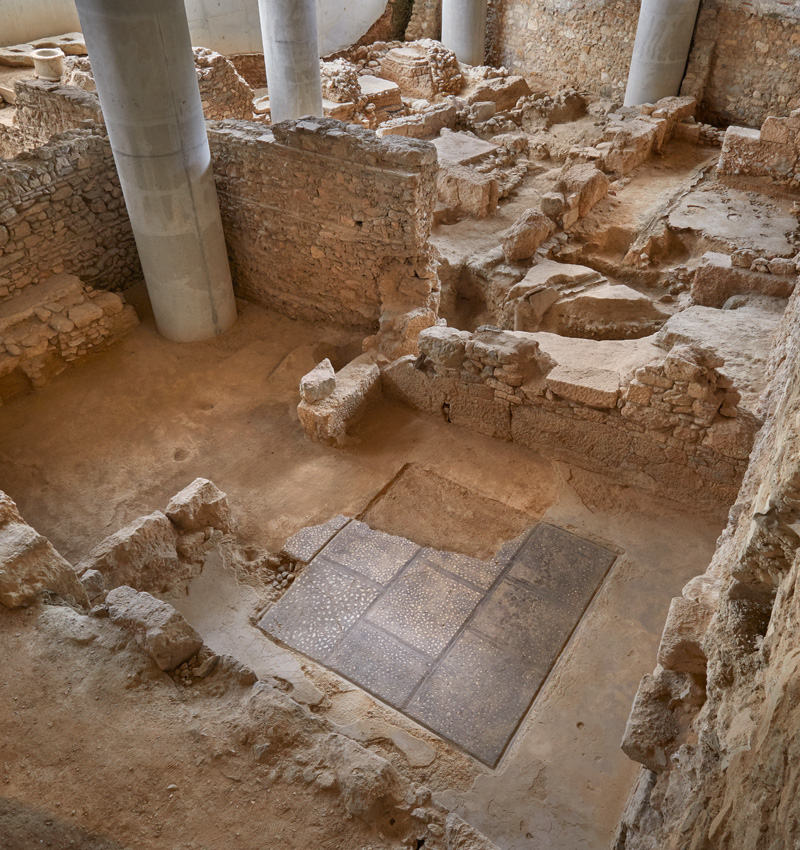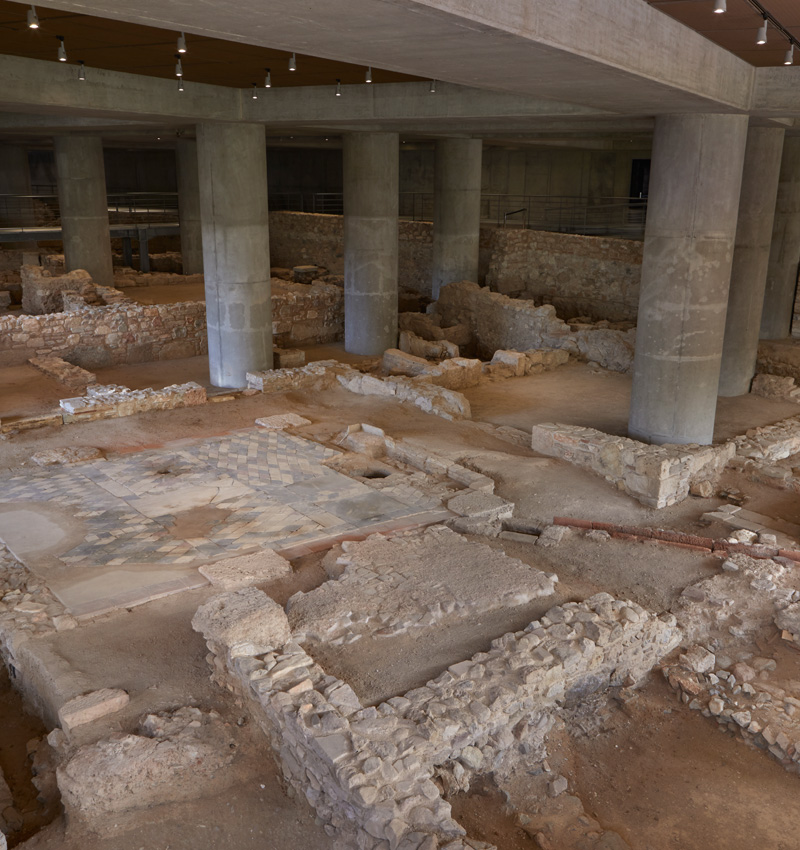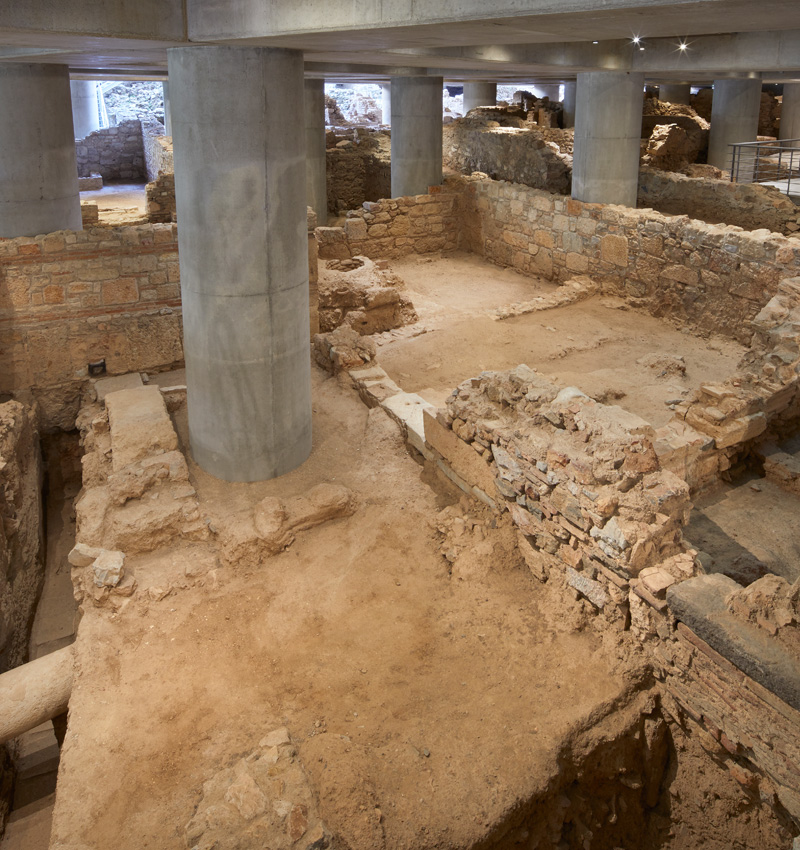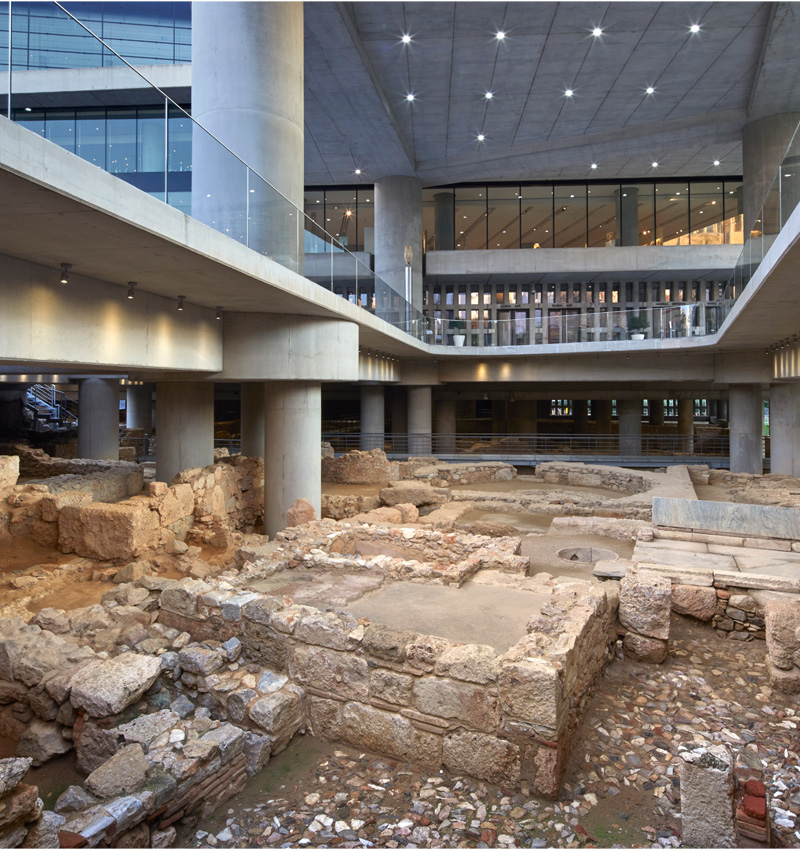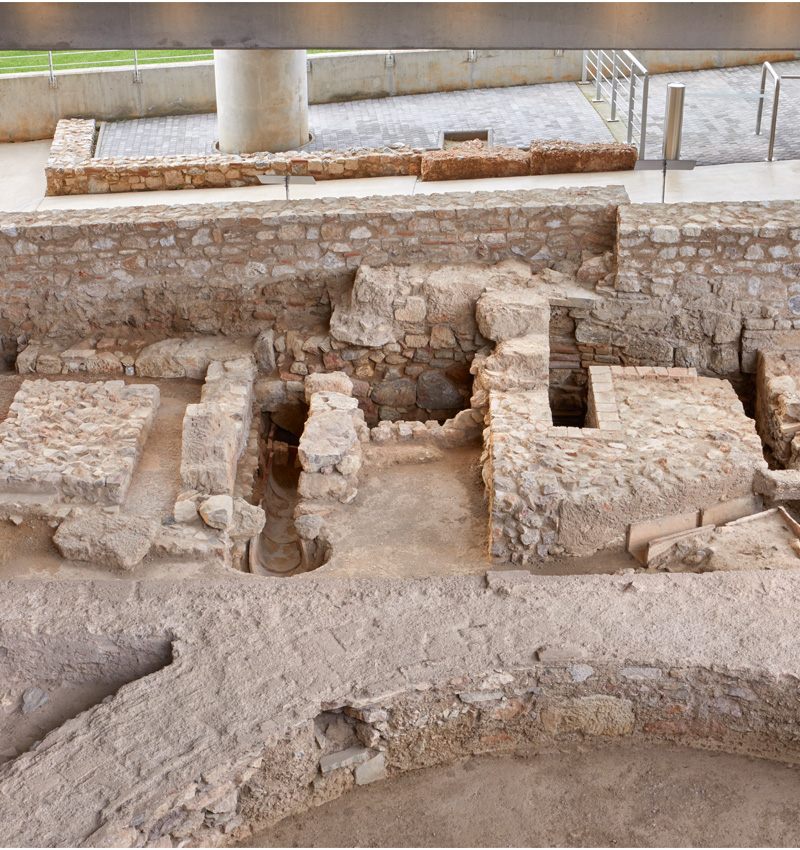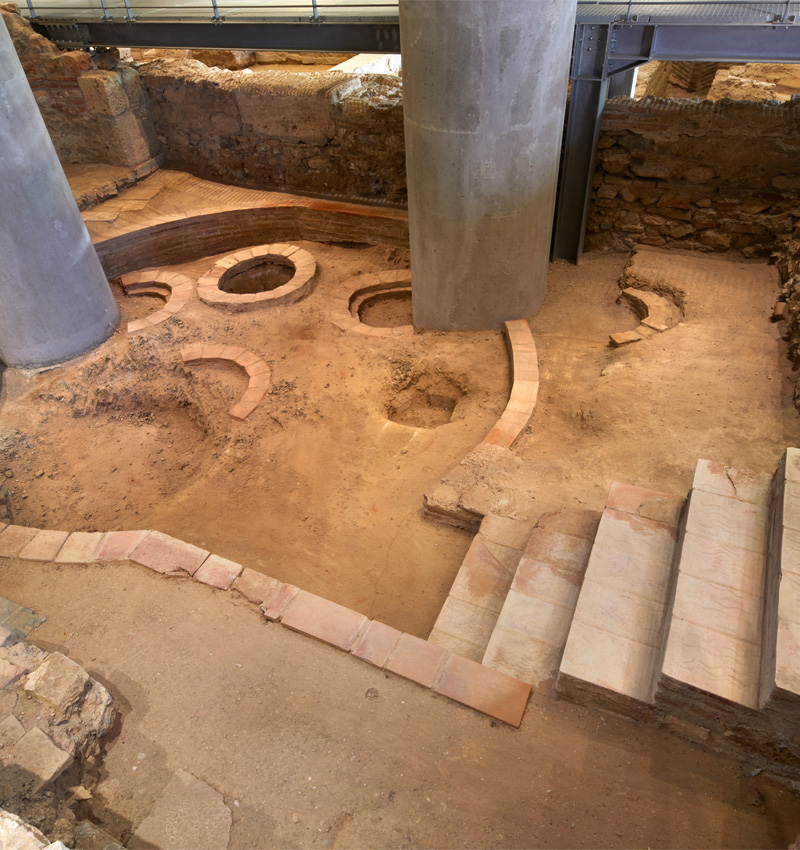THEMATIC SECTION
The buildings
The antiquities the visitor of the excavation sees today are only part of those discovered within the “Makrygiannis plot”, the enclosed area surrounding the Museum. Another part is preserved underground, since it was re-covered with soil, while yet another part was removed in order to construct the subterranean levels, mostly those of the “Acropolis” metro station.
The area was inhabited nearly continuously until the end of antiquity. Each generation left its own mark by repairing older buildings or building new ones over the ruins. This long usage created a condense grid of architectural remains with those dating to later antiquity being better preserved.
Today, the area is dominated by the impressive Building Z that was built around the middle of the 5th cent. AD., its new wing, Building E that was added in the beginning of the following century and the workshops that were established there after the complex was abandoned.
Inside and outside of these buildings, isles of older structural remains standout such as those of Houses Γ, Η and ΣΤ that were constructed in the end of the 4th/beginning of 5th cent. AD, the West Bath dated to the 2nd cent. AD, as well as four public latrines that operated consecutively from the 2nd cent. BC until the 5th cent. AD. Lastly, at the excavation’s south western edge, are preserved the remains of House Θ, mainly those belonging to the older building phases of the 5th, 4th and 3rd cent. BC.




